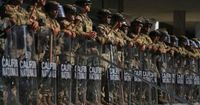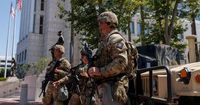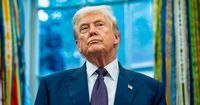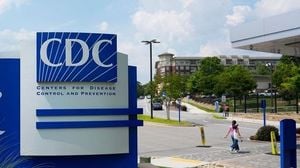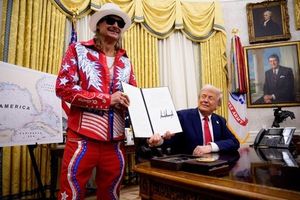On the evening of August 12, 2025, the streets of Washington, D.C., took on a new and striking look. Armored vehicles rumbled past the National Mall, camouflaged National Guard troops erected barricades outside government buildings, and tourists found themselves snapping selfies with soldiers in the shadow of the Capitol. The sudden military presence followed President Donald Trump’s announcement that 800 National Guard troops and 500 federal law enforcement agents would be deployed to the capital. Trump justified the move by declaring that violent crime was spiraling out of control in the city, a claim he’s echoed about other major, Democrat-led cities like New York and Chicago.
But the reality on the ground, as reported by BBC and corroborated by data from the Metropolitan Police Department (MPDC), paints a different picture. Violent crime in Washington, D.C., has actually fallen sharply after peaking in 2023. By 2024, the city reached its lowest violent crime levels in three decades, and the downward trend has continued into 2025. According to preliminary MPDC figures, violent crime is down 26% this year compared to the same period in 2024, with robberies dropping by 28%. FBI data shows a more modest but still significant 9% decrease in crime last year.
Despite these statistics, the Trump administration has pressed ahead with its show of force. White House press secretary Karoline Leavitt described the deployment as just the beginning of a relentless campaign: “Over the course of the next month, the Trump administration will relentlessly pursue and arrest every violent criminal in the District who breaks the law, undermines public safety, and endangers law-abiding Americans.” On the first night of the operation, federal agents arrested 23 people on charges ranging from homicide and gun offenses to drug dealing and reckless driving. FBI Director Kash Patel confirmed that FBI agents were involved in about half of those arrests.
Mayor Muriel Bowser, a Democrat, has been one of the most vocal critics of the deployment, describing it as an “authoritarian push.” At a town hall on Tuesday night, Bowser didn’t mince words: she called on Washingtonians to “protect our city, to protect our autonomy, to protect our home rule and get to the other side of this guy and make sure we elect a Democratic House so that we have a backstop to this authoritarian push,” according to The New York Times.
Yet, Bowser and Metropolitan Police Department Chief Pamela Smith also emphasized their shared goal with federal agents—reducing illegal guns and making the city safer. “What I’m focused on is the federal surge and how to make the most of the federal officers that we have,” Bowser said after meeting with U.S. Attorney General Pam Bondi. Smith added, “We know that we have to get illegal guns off of our streets, and if we have this influx of enhanced presence, we know that it’s going to make our city even better.”
Not everyone is convinced by the official crime numbers. Gregg Pemberton, chairman of the D.C. Police Union, accused the city’s police department of “deliberately falsifying crime data, creating a false narrative of reduced crime while communities suffer.” This skepticism persists even as independent FBI data supports the trend of declining crime.
The deployment in D.C. came amid a manhunt for an armed assailant who killed a man in Logan Circle, one of the city’s trendiest neighborhoods, marking the 100th homicide recorded in Washington, D.C., in 2025. The U.S. Secret Service responded by increasing security outside the president’s home as a precaution. The incident reignited debate over the city’s crime rates and the federal government’s intervention in local policing.
Meanwhile, on the other side of the country, a fierce legal battle has been playing out in federal court over a similar deployment in Los Angeles earlier this year. President Trump sent approximately 700 Marines and 4,000 California National Guard troops to Los Angeles in June, citing the need to protect federal property and law enforcement agents during protests against Immigration and Customs Enforcement (ICE) operations. California Governor Gavin Newsom did not approve the use of his state’s Guard forces, calling the move an illegal “power grab.”
The case, now before U.S. District Judge Charles Breyer in San Francisco, centers on whether the deployment violated the Posse Comitatus Act of 1878, which generally bars the use of military personnel in civilian law enforcement. California’s attorney, Meghan Strong, argued that the troops acted unlawfully by providing armed security, setting up roadblocks, and detaining civilians during immigration enforcement operations. “Californians have been forced to endure anxiety and fear caused by the pervasive presence of this standing army,” Strong asserted in court.
The federal government, represented by Justice Department attorney Eric Hamilton, countered that the deployment was legal and necessary to protect federal property and personnel. Major General Scott Sherman, who led the Guard task force in Los Angeles, testified that troops were instructed not to conduct law enforcement operations but to serve the United States. Sherman said, “We took our duty very seriously, and care and professionalism was always exhibited.”
But the heart of the legal dispute revolves around an alleged “constitutional exception” to the Posse Comitatus Act. Sherman testified that Department of Defense attorneys told him the military could perform certain prohibited activities—such as security patrols, traffic control, crowd control, and riot control—because President Trump’s order classified the protests as a “rebellion.” Judge Breyer pressed Sherman and the DOJ on this point, expressing doubt about the legal foundation for such an exception: “Are you saying that because the president says it, therefore it is?” Breyer asked pointedly.
California’s attorney Strong was direct in her rebuttal: “Those directives are based on a constitutional exception that doesn’t exist.” She argued that neither the president nor the secretary of defense could create an exception to the Posse Comitatus Act outside of the explicit provisions of the Insurrection Act, which Trump has not invoked.
The legal theory underpinning the federal government’s position is known as the “protective power” doctrine. It suggests that the president has inherent constitutional authority to use the military to protect federal property, personnel, and functions—even if that means taking actions that would normally be barred under Posse Comitatus. This expansive interpretation, rooted in the Take Care Clause of the Constitution, has drawn sharp criticism from legal scholars and state officials alike.
The trial in San Francisco is ongoing, with its outcome likely to shape the boundaries of federal and presidential power for years to come. As of August 13, about 300 National Guard forces remained active in Los Angeles, down from the initial deployment of over 5,000 troops and Marines. The debate over the legality and necessity of these deployments is far from settled.
Back in Washington, D.C., the sight of troops on the streets has sparked a national conversation about the appropriate limits of federal intervention in local affairs. With the Trump administration signaling that other cities could soon see similar deployments, the nation finds itself at a crossroads—balancing public safety, civil liberties, and the enduring question of who gets to decide how America’s streets are policed.
